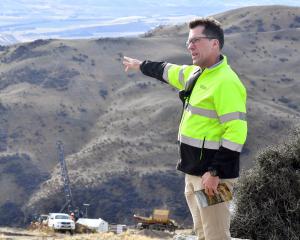
The application of critical thinking means you don’t necessarily accept all the argument from various authorities or officials to achieve a particular outcome.
While an initial proposition from central and local Government especially may well appear as sensible and achievable, it is the conclusions and final outcome drawn from a particular set of criteria that must be subject to the utmost scrutiny.
Applying critical thinking is crucial but often undervalued in the process of achieving positive outcomes, especially where matters of public policy are under consideration.
Too often policy is devised in isolation from public scrutiny (in committee) and therefore from those who may choose to challenge conventional wisdom. Representatives can simply base their knowledge and subsequent decisions on the advice of unattributed reports.
Society must be confident that public policy is based on correct assumptions and sound evidence — forged under the most rigorous scrutiny by those who will be impacted.
Our judicial system for the most part applies such scrutiny. Juries (the public drawn from outside the judicial system) listen to both prosecution and defence argument along with the essential cross-examination — by both the advocates for the prosecution and the defence.
The most essential element is the quality of the evidence presented, which is also subject to intense examination.
That system does not apply outside of the legal system, yet it should, as decisions made by our civic representatives impact on us all.
Their conclusions must conform to the highest of standards, and not be ideologically predetermined; regretfully this is becoming all too self-evident.
A most recent example is the acceptance of ministerial directives based on political expediency (bias) due to an abstracted coalition agreement. Minister David Parker now passes on his directives — unfettered by any obvious critical thinking — for implementation by the Otago Regional Council.
Future consultation with the public cannot now even remotely appear genuine in light of these prior directives. Good faith discussion has to be at the forefront of any outcome. The opportunity for critical thinking therefore has been set aside in favour of political directive.
One wrong conclusion can place an entire country or industry under threat. The coronavirus outbreak and spread from China is an immediate example.
One of the most important ‘‘letters to the editor’’ in recent times was the critical thinking applied by John Highton regarding the impact of four million visitors to this country annually.
His challenge to the authorities was to ensure all possible health checks are put in place to screen the ever-increasing flood of visitors . We effectively operate an open-door policy as to the health of visitors yet are rigorous when it comes to the biosecurity of flora and fauna.
Critical thinking relies on reason rather than on emotion, which these days is all too often based on populism and electoral advantage. Minister of Health David Clark appears to be applying a broad range of political considerations to a decision as whether or not to restrict visitors to New Zealand from areas where the coronavirus is uncontrolled.
Considerations such as the impact on tourism mean he is not applying critical thinking but convenient thinking. Further, he would be transferring significant political risk to a medical risk.
Medical staff would then be compelled to deal with this disease as best they can. Advice can appear (at face value) to be authoritative when delivered by those in academia or even by authoritative delivery, yet without evidence and critical thinking, such advice has no credibility.
A good example of well-documented critical thinking is when two Russian military personnel — on entirely separate occasions — defied their training and refused to authorise a nuclear strike against the US.
During the Cuban Missile Crisis in 1962, a Russian submarine was forced to surface due to depth charges from the American battle-fleet. The Russian submarine stationed off the coast of the US wrongly presumed war had been declared.
Vasili Arkhipov — a senior officer on the submarine — refused to accept the opinion of two other senior officers, thereby stopping the launch of a nuclear missile strike against the US.
The other instance was in 1983. Stanislav Petrov was in charge of the new Russian defence system. He had five incoming missiles on his computer screen, yet he rationalised in his advice to his superiors that it must be a false alarm. He was right. Petrov’s critical thinking probably saved the world from nuclear war.
Critical thinking is neither popular nor unpopular, it is neither right nor wrong — it is the application of logic.
When faced with issues such as gene technology, climate change, and gender equality, only those with the ability to think critically need apply.
■ Gerrard Eckhoff is a retired Central Otago farmer and former Otago regional councillor and Act MP.











